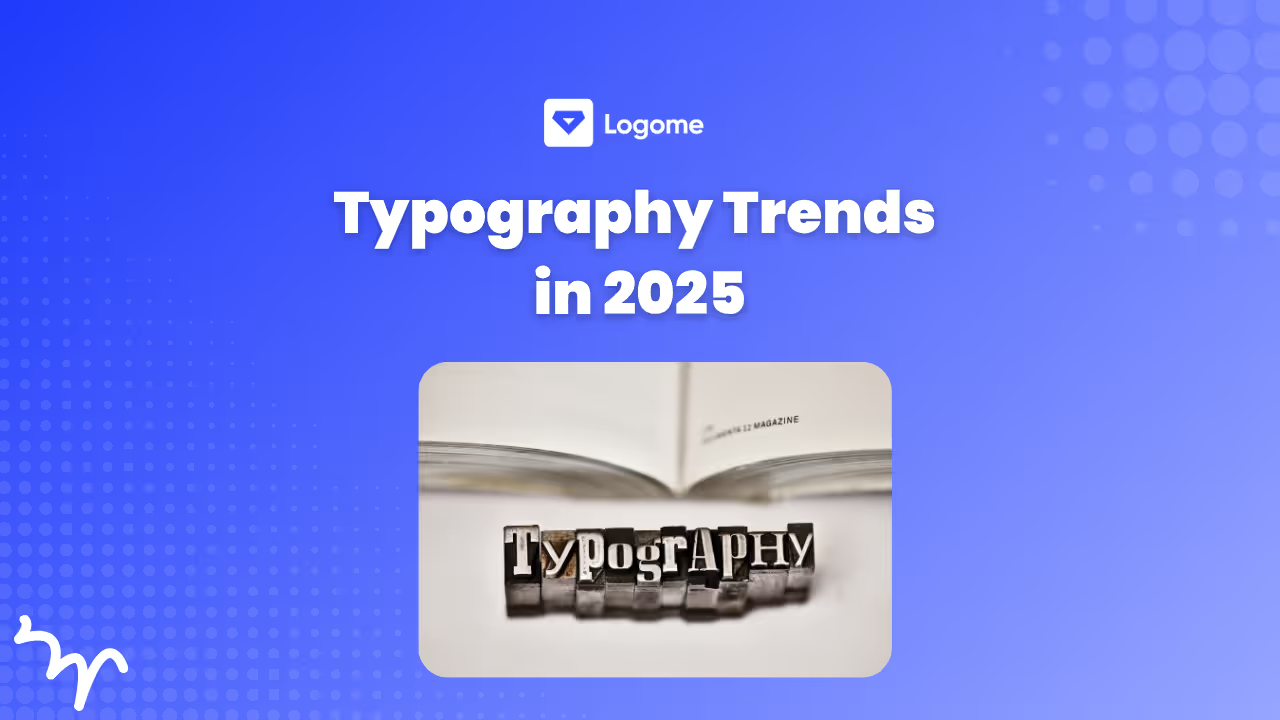Black Logos: Meaning, Strategy, and Design That Leaves a Mark
Discover why black logos are powerful and timeless. Learn design tips, cultural meanings, and how to create a black logo that truly represents your brand.
Discover why black logos are powerful and timeless. Learn design tips, cultural meanings, and how to create a black logo that truly represents your brand.

What makes a logo unforgettable? Sometimes, it’s not about color—but the lack of it. Black logos are bold, clean, and timeless. They don’t beg for attention; they command it.
Whether you're building a brand from scratch or reimagining your identity, black might be the most powerful choice in your design toolbox. From luxury brands to underground movements, the color black has a unique way of communicating authority, elegance, and confidence—without saying a word.
But choosing black isn’t just about style—it’s about strategy. Why do brands like Apple, Chanel, or Black Lives Matter lean into black? What makes a black logo feel premium, fierce, or disruptive?
In this guide, we’ll break it all down—what black logos really mean, when to use them, and how to design one that doesn’t just look good, but works. If you’re serious about branding, this is where the conversation starts.
Black isn't just a color—it’s a message. And in branding, the message matters more than the medium. This section unpacks why black logos work so well and what they make people feel when they see them. Because when done right, a black logo doesn’t just represent your business—it defines it.
Black carries weight. It’s the color of authority, control, and quiet confidence. A black logo isn’t trying to be liked—it already knows its worth. That’s why brands like Chanel, Nike, and Apple use black in their logos to express sophistication, status, and power.
For tech brands, black feels clean and modern. For luxury fashion, it signals exclusivity. For underground brands or cultural movements, it can feel raw, rebellious, and unapologetically real. Whatever the context, black communicates with clarity—and zero fluff.
Black works best when your brand has a strong personality. If you want to be seen as bold, premium, or disruptive, black is your ally. It strips away distractions and puts focus on form, structure, and meaning.
But it’s not for everyone. A daycare, for instance, might lose warmth and trust if it leans into black too heavily. The key is aligning your logo color with your brand voice. If you want to show you're not just another player in the market, black sends that message without raising its voice.
Now that we understand why black works, let’s talk about how to make it work for you. A black logo is powerful—but only when it’s intentional. This section dives into practical design rules that help black logos stand out, stay versatile, and actually communicate your brand identity.
Black thrives on simplicity. Without color distractions, your shapes, lines, and typography take center stage. That’s why the most iconic black logos—like Nike’s swoosh or Apple’s bitten apple—are minimal but unforgettable.
The goal isn’t to design something complicated. It’s to create something that sticks. Focus on clean geometry, strong contrast, and a design that holds up whether it’s on a business card or a billboard.
When working with black, what you don’t design is just as important as what you do. Negative space adds intrigue, balances the visual weight, and makes your logo breathe.
Typography plays a huge role too. Think of The New York Times’ logo—its blackletter typeface adds heritage and authority. Serif fonts can feel premium, while sans-serifs give off a more modern vibe. The key is to choose a font that mirrors your brand's tone—refined, edgy, classic, or bold.
Black doesn’t always need a partner—but when it has one, it better be a good match.
Each combo sends a different signal. Pick the one that aligns with your core message, not just what looks cool.
Black logos don’t just belong to fashion brands and tech giants. They also live at the heart of powerful cultural symbols and social movements. In this section, we explore how black logos go beyond aesthetics—they carry identity, resistance, and meaning.

This isn’t just a logo—it’s a symbol of global activism. The raised fist in black, often paired with bold sans-serif typography, is instantly recognizable and emotionally charged. It’s not polished or corporate. It’s raw, direct, and urgent.
The use of black here is deliberate. It represents strength, solidarity, and resistance. The BLM logo doesn’t aim to be beautiful—it aims to be unignorable. It proves that a black logo can become a banner for justice when aligned with a powerful cause.

Before it became a Marvel blockbuster, “Black Panther” represented a political movement. But in pop culture, the logo took on a new life—a panther silhouette, sharp angles, and futuristic typography—all in black.
The color amplifies themes of identity, power, and heritage. It’s elegant but fierce. And it resonates because it honors both cultural roots and aspirational strength. Whether on merchandise or movie posters, the black logo anchors the story in pride and purpose.

Four vertical black bars. That’s it. But for fans of punk rock, the Black Flag logo is iconic. It’s aggressive, anti-establishment, and intentionally imperfect—exactly like the music it represents.
The black bars resemble a waving flag, but also look like prison bars, depending on your interpretation. It’s minimalist rebellion. No color, no gradients—just bold, unapologetic black.

Gaming brands often use black to represent stealth, danger, and high stakes—and the Black Ops 6 logo is no exception. Its use of sharp lines, tactical iconography, and heavy contrast feels cinematic and gritty.
Black here isn’t about elegance—it’s about intensity. This logo doesn’t just tell you what the game is called—it tells you how it feels to play it.

A symbol recognized worldwide, the black bat silhouette on a yellow oval background is synonymous with mystery, justice, and darkness. The stark black shape cuts through the bright background, emphasizing stealth and vigilance.
The logo’s simplicity combined with its bold black shape conveys the complex personality of Batman—both dark and heroic. It’s a perfect example of black used to communicate intrigue and strength in popular culture.

While often shown in red, the iconic Rolling Stones logo also appears in black for specific merchandise and campaigns. The black rendition highlights rebellion and raw energy.
The black version strips the design to its edgy core, making it feel more aggressive and timeless—just like the band’s legacy. It shows how black can amplify an already powerful symbol.

Known globally, the Adidas trefoil or three stripes are often rendered in black to signal durability, simplicity, and athleticism. The black logos are versatile and carry a sense of strength and dependability.
In sportswear culture, black logos convey performance and no-nonsense attitude, appealing to a broad audience. Adidas’ choice of black in many applications shows how black logos can connect with active lifestyles and street fashion alike.

The circled “A” symbol, representing anarchism, is often presented in black. This logo communicates dissent, defiance, and a rejection of authority.
Black here isn’t just a color—it’s a political statement. Its rough, DIY style paired with black reinforces the raw, unpolished spirit of the movement. It’s another example of how black logos embody rebellion beyond commercial brands.
If you’re thinking of designing a black logo for your brand, it’s not just about making it look good—it’s about making it work. In this section, we’ll walk through the strategy behind creating a black logo that doesn’t just sit pretty but actually drives recognition, connection, and conversions.
Before opening any design tool, get clear on who you are as a brand. Are you bold and rebellious? Elegant and refined? Minimal and modern?
Black can represent all these things, but it needs direction. A luxury perfume brand might use black with a serif font and delicate spacing. A streetwear label might go for blocky type and high contrast. Your logo should match your tone, not fight against it.
Think of your brand like a personality. Black is flexible, but it still needs to wear the right outfit.
Too many black logos fall into the “meh” category because they copy trends instead of communicating identity. Common mistakes include:
The solution? Strip it down to what matters. Ask yourself: What emotion should my logo trigger? Then build from there—intentionally.

You don’t need to hire a $10,000 agency to create a powerful logo. Tools like Canva, Adobe Express, or Figma offer solid templates and design elements. But if you want a smart head start, use AI-based tools like Logome, which can generate sleek black logo concepts tailored to your industry and brand style.
Always test your design across multiple formats—on light backgrounds, in print, on mobile, and in grayscale. A great black logo should hold its identity everywhere.
Even though black is a safe and stylish choice, it’s easy to get it wrong. A poorly designed black logo can come off as lazy, confusing, or forgettable. In this section, we’ll break down the common mistakes brands make—and how to avoid them.
Black thrives in simplicity. Adding too many elements—shadows, bevels, textures—can muddy the clarity that black is meant to deliver. Some designers think black needs “extras” to pop, but in most cases, those extras dilute the impact.
Stick to bold, clean lines. Let the color do the talking. If your design only works when it’s dressed up, it’s not strong enough.
One of the biggest issues with black logos is visibility, especially on dark backgrounds. If your logo disappears in certain settings, you’ve got a usability problem.
Always design with contrast in mind. Consider creating light or inverted versions of your logo for different use cases. A good black logo should adapt easily to different formats and still be legible at any size.
Trendy isn’t timeless. Logos that mimic what’s popular today often feel outdated tomorrow. A black logo with trendy fonts or layouts might get attention now, but will it still make sense in five years?
The key is to design for identity, not Instagram likes. Make decisions based on your brand story, not what’s trending on design blogs.
Black logos aren’t just stylish—they’re strategic. They’re chosen by brands that want to cut through the noise with a design that feels confident, clean, and unforgettable. But they’re not a one-size-fits-all solution.
If your brand is bold, elevated, or wants to communicate strength and clarity, black might be the right color to lead with. But it still needs thoughtful design behind it—something that reflects your brand’s voice, values, and audience.
Before you commit to black, ask yourself: Does this color align with what I want people to feel when they see my brand? If the answer is yes, you’re already on the right track. Just remember—black doesn’t hide weak design. It exposes it. So keep it simple, intentional, and distinct.
And when done right? A black logo doesn’t just make your brand look good. It makes it unforgettable.
A black logo often conveys sophistication, elegance, and authority. It’s commonly used by brands that want to express luxury, strength, or timeless appeal.
Companies use black to create a bold and professional impression. It’s a color that signifies control, modernity, and confidence, making it ideal for high-impact branding.
Yes, black is a versatile and powerful choice for logos. It works across industries and adapts well to different formats, especially when simplicity and contrast are key.
Some well-known brands with black logos include Nike, Chanel, Apple, and Adidas. These logos are memorable because of their clean design and strong presence.
In branding, black often represents exclusivity, seriousness, and elegance. It’s frequently used by premium or disruptive brands to communicate confidence and clarity.



Discover how 500,000+ businesses and creators are using our AI logo maker in their Logo creation.



